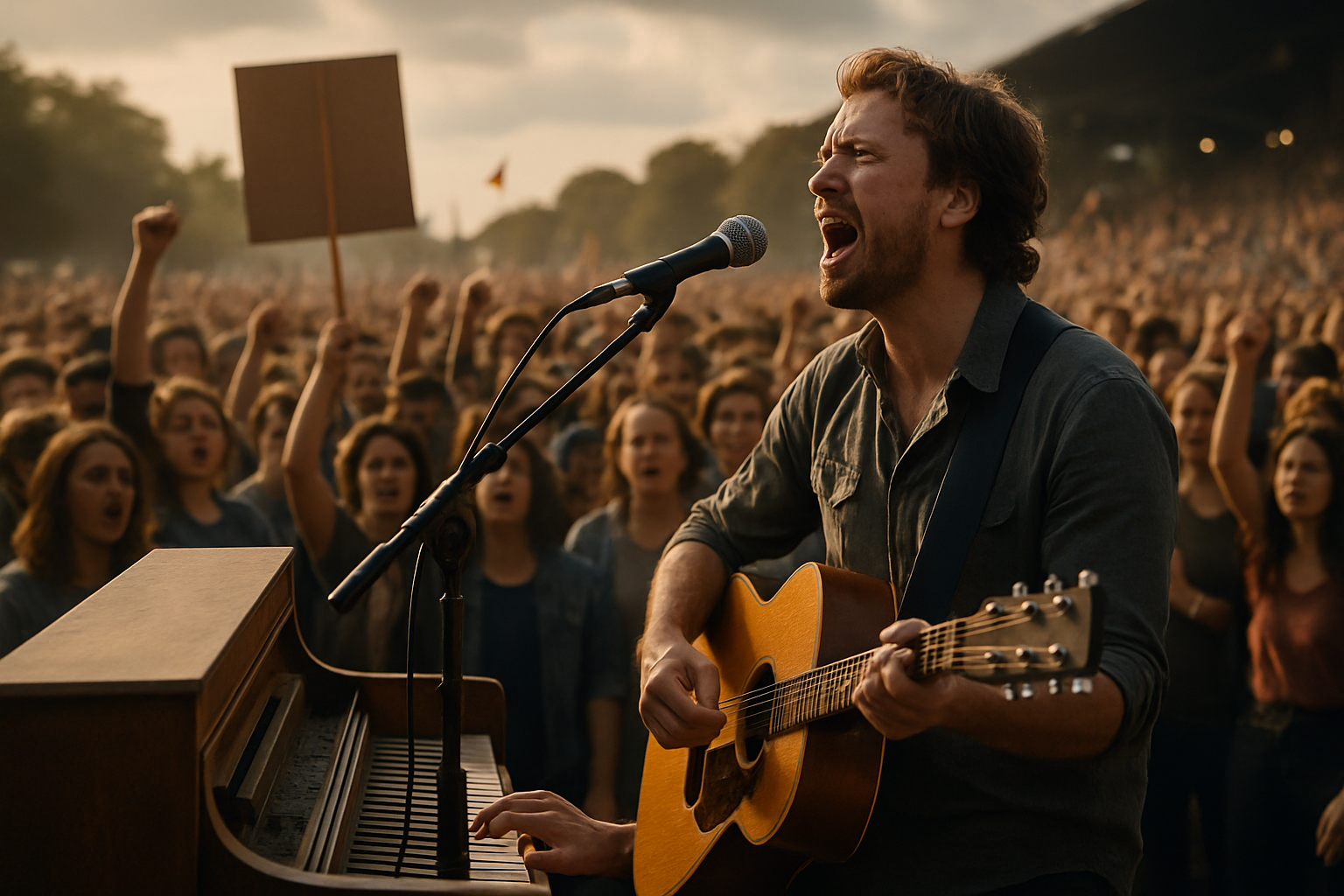The Subtle Power of Music: Societal Undercurrents in Popular Melodies
Music, like a universal language, transcends borders and bridges cultural divides. It is a powerful tool for societal expression and understanding. This article delves into how music mirrors societal trends and influences cultural shifts. Read below to explore this fascinating interplay.

The Societal Symphony: Music as a Reflection of Society
Music has always been a mirror of society, reflecting its joys, sorrows, fears, and hopes. From the protest songs of the 1960s that echoed public sentiment against the Vietnam War to the 1980s pop anthems that celebrated individuality and freedom, music offers a unique lens to understand the pulse of a society.
Historically, societal events have shaped the music of their times. The Great Depression saw an explosion of blues music, encapsulating the struggles and hardships of the era. Conversely, the economic prosperity of the post-World War II era birthed the upbeat, optimistic tones of rock and roll.
Modern Melodies: Current Trends in Music
In our contemporary world, music continues to serve as a barometer of societal trends. The rise of independent artists and the dominance of streaming platforms is a reflection of our society’s increasing emphasis on individualism and digitalization.
Similarly, the lyrical themes prevalent in today’s popular music - mental health struggles, identity exploration, social justice - mirror the concerns and conversations prevalent in our society. The increasing diversity of musical genres and artists also signifies our society’s gradual shift towards inclusivity and representation.
The Cultural Chorus: Music’s Influence on Society
While music often mirrors society, it also holds the power to influence and shape societal norms. For instance, the feminist anthems of the late 20th century played a crucial role in propelling the women’s rights movement. Music’s ability to tap into our emotions makes it a potent medium for promoting social change.
Moreover, music plays a key role in shaping our collective identity. Shared musical experiences like concerts or festivals foster a sense of community and belonging, strengthening societal bonds.
The Research Rhythm: Evidence of Music’s Societal Impact
Research supports the idea that music can influence societal attitudes and behaviors. For example, a study published in the Journal of Personality and Social Psychology found that songs with prosocial lyrics increased listeners’ empathy and willingness to help others.
Another research conducted by the University of Oxford underscored the role of music in social bonding, suggesting that shared musical experiences can strengthen interpersonal connections and foster a sense of community.
The Harmony of Understanding: Balancing Depth and Accessibility
Understanding the societal implications of music requires both depth and accessibility. While it’s essential to delve into the complex societal factors that shape and are shaped by music, this exploration should be digestible and engaging.
The power of music lies in its universality - it touches all of us, regardless of our background or expertise. Thus, discussions around music’s societal impact should invite everyone to the table, sparking thought-provoking conversations and fostering a deeper appreciation for the subtle power of music in our lives.
To conclude, the interplay between music and society is a rich and fascinating area of exploration. By lending an ear to the melodies around us, we can gain valuable insights into the rhythm of our society and our place within it. At the same time, we can appreciate how music, in its many forms, continues to play a crucial role in shaping our cultural landscape.




